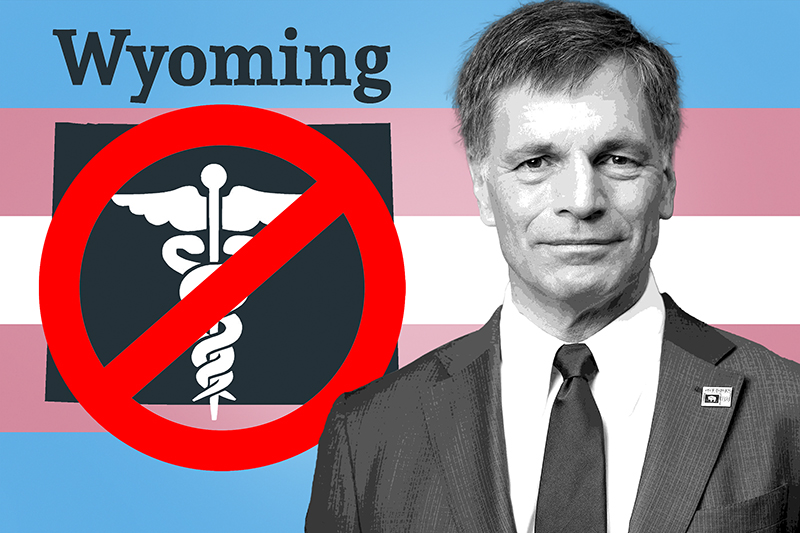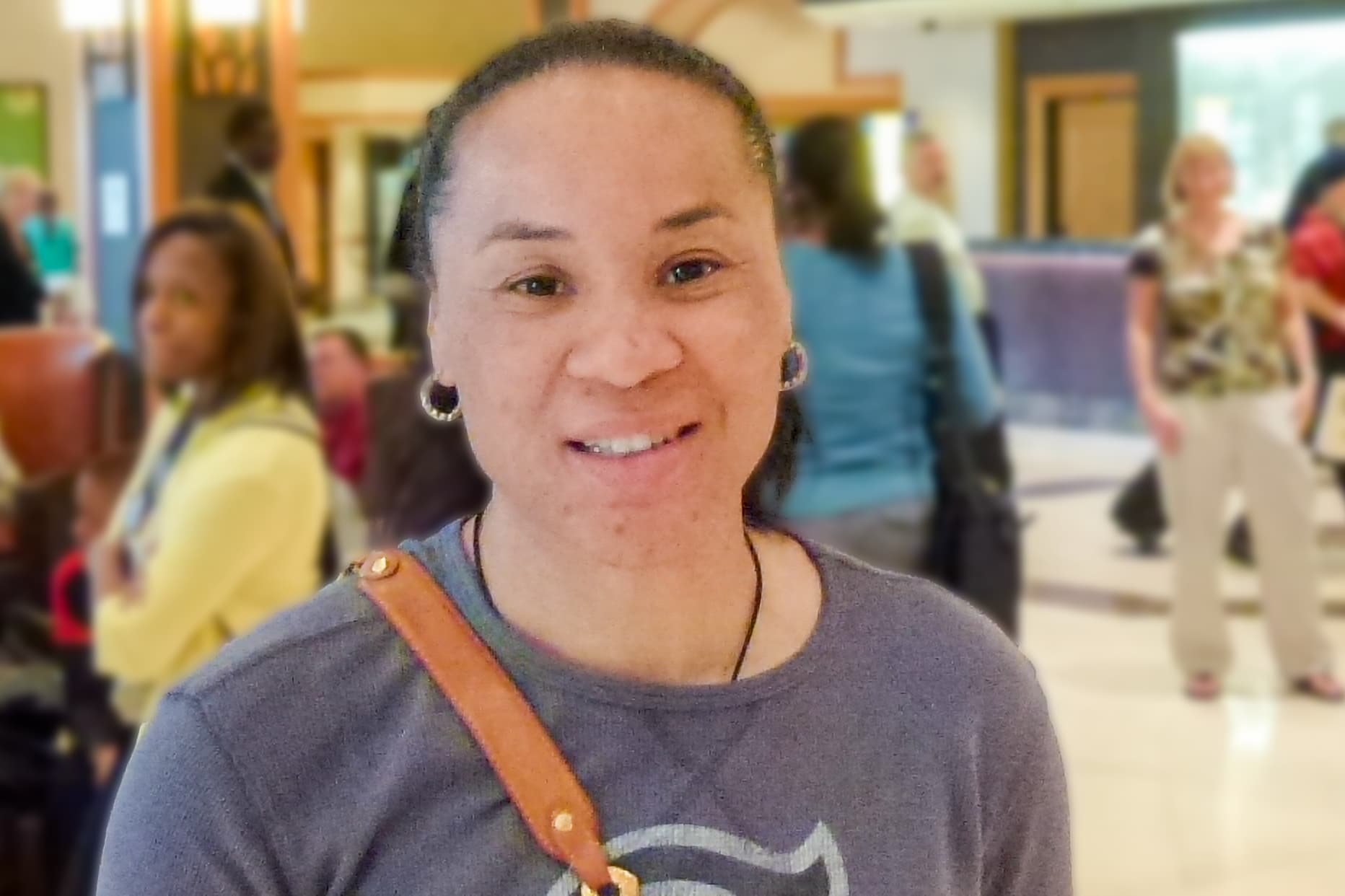Texas Republicans reportedly have votes to pass ban on transgender athletes
Bill prohibiting trans students from playing on teams matching their gender identity poised to pass State House of Representatives.

After failing three times earlier this year, Texas lawmakers are finally poised to pass legislation that would bar transgender students from participating on sports teams that match their gender identity.
Last Wednesday, the Texas Senate passed SB 3, marking the fourth time this year that the upper chamber has passed a bill restricting transgender student-athletes to competing on teams designated for their assigned sex at birth. But the three previous times — once during the regular legislative session and in two special sessions — the House of Representatives either failed to act on the bill or failed to pass it before the special session expired.
Now, however, House Speaker Dade Phelan (R-Beaumont) says House Republicans have the votes necessary to pass a bill barring transgender athletes from women’s sports, according to the Texas Tribune.
In an interview at The Texas Tribune Festival on Friday, Phelan said that 75 state representatives signed on as sponsors or authors of the House’s version of the bill during the last special session, leaving them only one vote shy of a majority. Additionally, he said, one version of a bill has garnered close to 80 co-authors, giving opponents of transgender rights more than enough votes to impose a ban.
In past years, Phelan publicly denounced legislation targeting LGBTQ Texans, and has generally shied away from bills that touch on contentious culture-war issues — a key message that allowed him to become Speaker by combining support from Democrats with his Republican supporters in order to outflank his more conservative rivals.
However, this year, under pressure from social conservatives within his party, Phelan has signaled support — albeit tepid, compared to his fellow Republicans — for a transgender athlete ban. That said, he will allow the bill to go through the regular legislative process, meaning opponents could still block or delay its progress using a number of procedural maneuvers.
“The votes are there on the House floor to probably pass the legislation as it stands now,” Phelan told the Tribune. “It will go through a committee process, it will go through [the] calendars [committee] like everything else. Like any other piece of legislation, it’ll be incumbent upon the author to make the case throughout the process, and we’ll see if it makes it to the House floor.”
Currently, the University Interscholastic League of Texas, which governs high school athletics in the Lone Star State, uses birth certificates to confirm students’ gender. However, the UIL does make an exception for students whose birth certificates that have been changed to reflect their gender identity. Under SB 3 or its House companions, that exception would be eliminated.
Related: Thousands of trans youth contacted suicide hotline while Texas GOP pushed anti-trans bills
For mothers of trans children, the prospect of a transgender athlete ban — and the time they’ve had to spend at the State Capitol in Austin lobbying or protesting against it, not only during the regular session but the three subsequent special sessions called by Gov. Greg Abbott to address some of his personally preferred legislative priorities — has been an emotionally draining experience.
“My health has been affected by this. I have lost sleep. I’m losing my hair, I’m having to take different medications,” Linzy Foster, 42, an Austin resident and mother to a transgender girl, told the Tribune. “This is chronic stress that we’re dealing with, because we get these little breathers in between sessions where we think, ‘OK, are we done? Are we good? At least maybe we can take a break, and then maybe we’ll think about strategy for next session, because we know it’s coming,’ but we don’t even get a break yet.”
Other parents, like 43-year-old Houstonian Karen Krajcer, the mother of a 9-year-old trans child, are considering moving from Texas if the bill passes, due to not only the proposed athlete ban but other legislation, such as a bill proposed earlier this year that would have allowed parents to be charged with “child abuse” if their child received gender-affirming health care treatments such as puberty blockers or hormones. (Most transgender health practitioners do not recommend or typically carry out gender confirmation surgeries on minors.)
“My daughter said to me, ‘Are we going to have to move?'” Krajcer told the Tribune, adding that her daughter believes it would be her fault if the family was forced to move — creating additional mental and emotional burdens for her 9-year-old.
Related: Texas employers issue letter urging lawmakers not to pass anti-LGBTQ bills
Jordyn Pollack, a 29-year-old transgender Texan who has shown up at the Capitol to support others protesting the proposed athlete ban, notes that he moved to Texas in his junior year of high school but was closeted about his gender identity, only coming out as transgender about five years ago. Pollack says that hiding his gender identity weighed on him, and the passage of bills like SB 3 could place other transgender youths in a similar situation.
“I wasn’t always happy. I definitely had some suicidal thoughts, like early on in age…” he told Metro Weekly in an interview. “When I was a little kid, I would always lay in bed at night and wish I could wake up a boy every day. And I would always want to dress like a guy. I always was hanging out with all the guys. I had a lot more guy friends than girl friends.
“I played sports in high school: basketball, lacrosse, softball. I was always really active. I skateboarded. So, looking back, if I had transitioned in high school and looked and appeared to be male, like I do now, I definitely would have wanted to play on the boys’ team. Being forced to play with the females and appearing as male could have caused bad things to happen,” he says. “That’s when kids start to talk. When adults aren’t allowing children to be themselves, then why should other children allow [trans] kids to be themselves? When they put these rules and restrictions into place, it’s going to stir up stuff in the school, which can cause transgender kids to be singled out and not have any friends. That’s just not a good environment.”
Pollack says it’s disheartening to think about transgender and gender-nonconforming children losing out on the athletic, emotional, and social benefits of playing organized sports.
“For me, what sports did was it helped build my confidence and taught me to be a team player,” he says. “It shows you how to be dedicated to something… you get to meet people that you bond with. Trans kids should have the right to be able to play these sports, build their confidence, have that feeling of team camaraderie, and make friends on a team that matches their gender identity.”
Pollack also worries that imposing limits on team membership based on a person’s biological sex at birth will force some trans kids who are already playing sports on teams matching their gender identity to be outed against their will. That said, he admires those trans youth who have come out of their own accord, especially since he wasn’t as strong to come out when he was their age.
Asked what advice he would give to trans athletes impacted by the potential passage of SB 3, Pollack says: “I would tell these kids not to give up and keep fighting, to keep being yourself. And even if they’re going to make you play on another team, you should still be the person you believe you are.”
See also:
Hundreds of Texas students walk out of school over alleged anti-LGBTQ discrimination
Utah school district bans ‘politically charged’ Pride flag from classrooms
Jake Gyllenhaal: ‘Brokeback Mountain’ helped break ‘stigma’ of straight actors taking gay roles
Support Metro Weekly’s Journalism
These are challenging times for news organizations. And yet it’s crucial we stay active and provide vital resources and information to both our local readers and the world. So won’t you please take a moment and consider supporting Metro Weekly with a membership? For as little as $5 a month, you can help ensure Metro Weekly magazine and MetroWeekly.com remain free, viable resources as we provide the best, most diverse, culturally-resonant LGBTQ coverage in both the D.C. region and around the world. Memberships come with exclusive perks and discounts, your own personal digital delivery of each week’s magazine (and an archive), access to our Member's Lounge when it launches this fall, and exclusive members-only items like Metro Weekly Membership Mugs and Tote Bags! Check out all our membership levels here and please join us today!
























